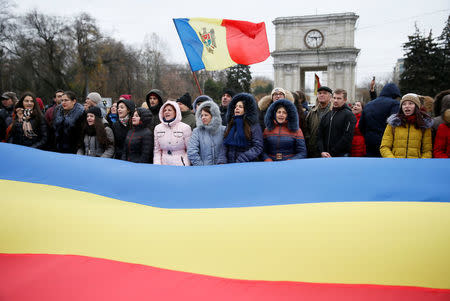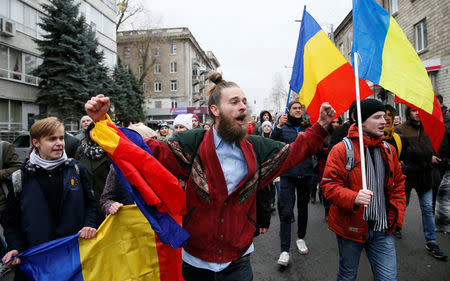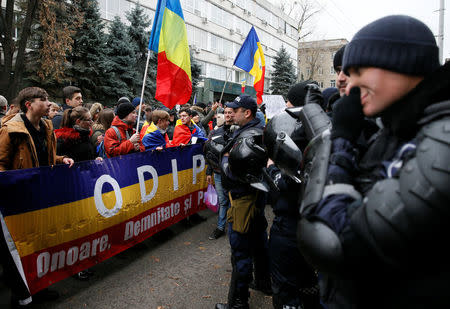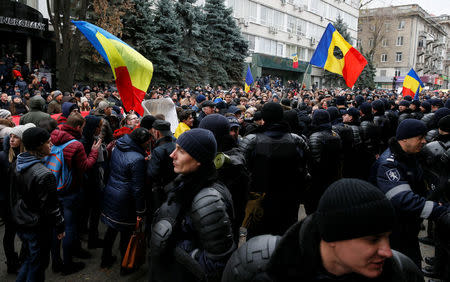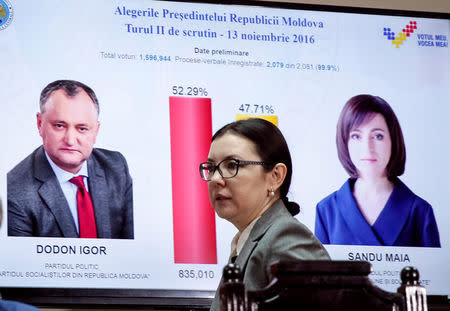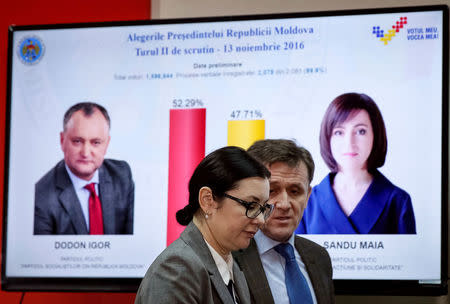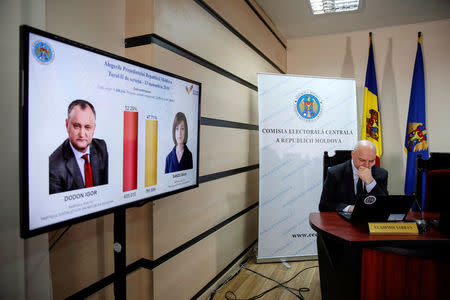Moldova's pro-Russian president-elect wants snap parliamentary election
By Alessandra Prentice and Alexander Tanas CHISINAU (Reuters) - The pro-Russian winner of Moldova's presidential election said on Monday he would push for early parliamentary elections next year to force out a government that favors closer ties with the European Union. New elections would mean yet more instability for Moldova, where a $1 billion graft scandal in 2014 badly damaged trust in pro-EU leaders and resulted in the prime minister being jailed. The impoverished country has had four premiers since then. Igor Dodon won Sunday's election after campaigning for the scrapping of a trade deal the former Soviet state signed with Brussels in 2014. He told Russian state television voters had "united and voted for friendship with Russia, for neutrality". "A very serious combat is ahead but we are ready for this combat," he said, referring to an election he wants to bring forward to next year, from 2018. Anti-EU rhetoric proved rewarding elsewhere in eastern Europe on Sunday, as a pro-Russian candidate won the presidency in Bulgaria. The Kremlin congratulated both Dodon and Bulgaria's Rumen Radev on their victories. Dodon's win prompted more than 2,000 pro-European Moldovans to protest against alleged electoral violations. Waving Moldovan flags and a giant Romanian tricolor, they chanted "We still have a chance" and "Dodon to the trash". Dodon has called for a snap election before, but his call for one so soon after his victory suggests he and the government could be at loggerheads from the start of his presidency. TRADE EMBARGO On Sunday, Prime Minister Pavel Filip said the government and new president would need to work together, but added that Moldova's path towards greater EU integration "cannot be reversed". Russia imposed trade restrictions on Moldovan exports after it signed the political and trade agreement with the European bloc in 2014. Dodon's Socialist party wants to scrap that agreement in favor of joining a Eurasian economic union dominated by Russia - a policy backed by many Moldovans who suffered financially from the goods embargo and a broader economic downturn. Some analysts question how far he is willing to push Moldova back into Moscow's orbit. In October, an ambassador from one EU member state told Reuters that Dodon had privately told diplomats his party would not jettison the EU accord. Dodon's opponent in the race, Maia Sandu, has yet to accept the preliminary results and said she was compiling a list of all the violations and would present it to the Central Electoral Commission for review. The Organization for Security and Co-operation in Europe (OSCE), which monitored the election, said on Monday its overall assessment was positive, with key procedures followed. However it said reports that some voters were unable to vote because of a lack of ballots were "regrettable". (Additional reporting by Maria Kiselyova and Andrey Ostroukh in Moscow; Editing by Matthias Williams and Andrew Roche)


